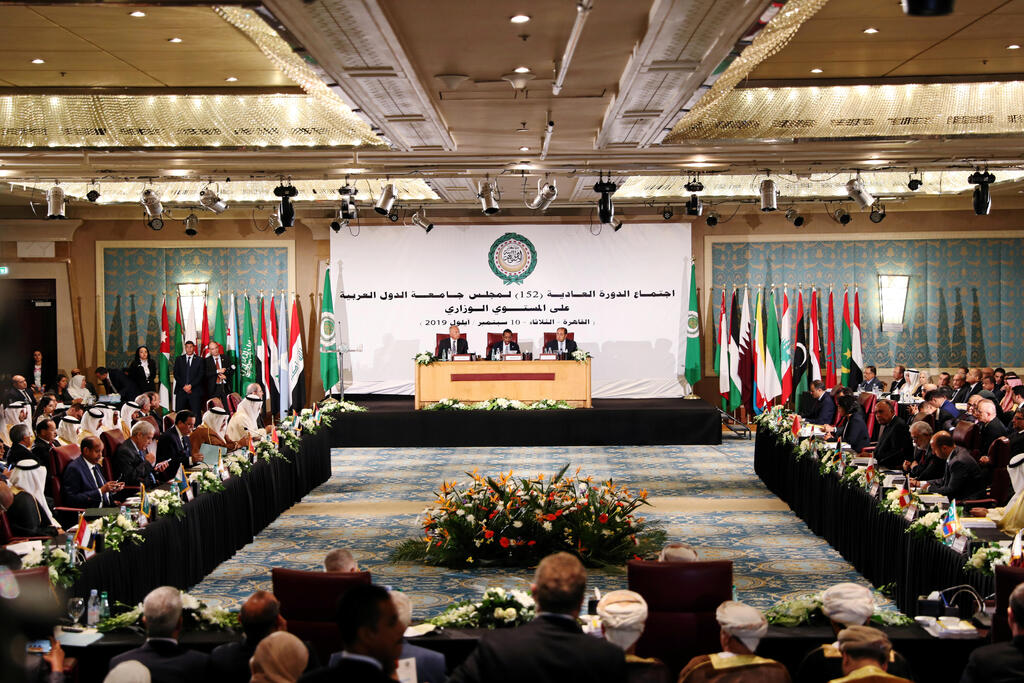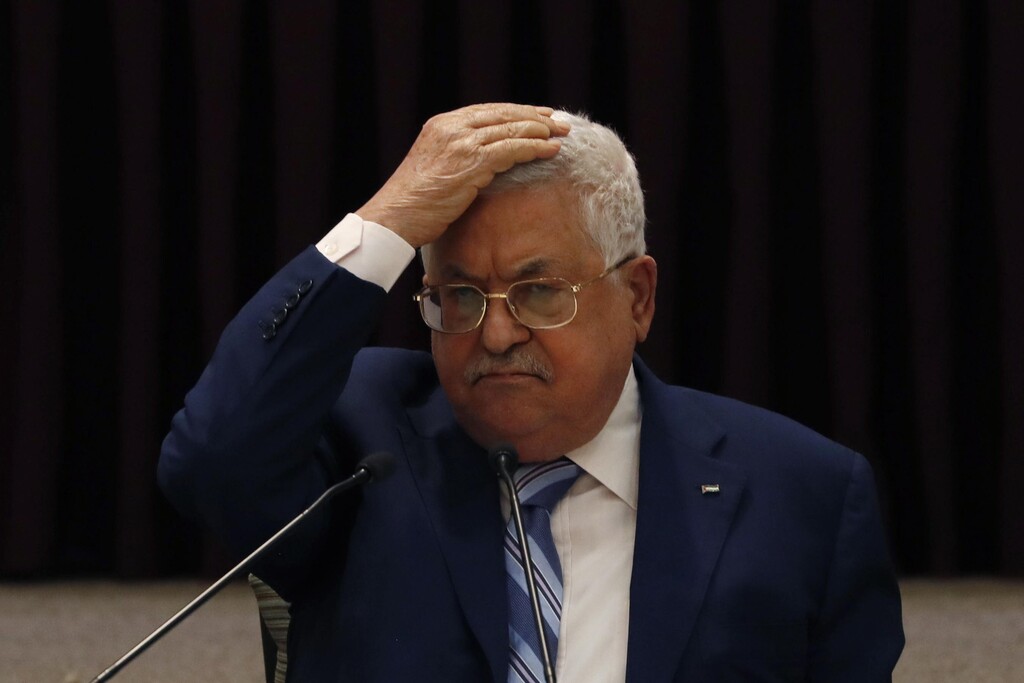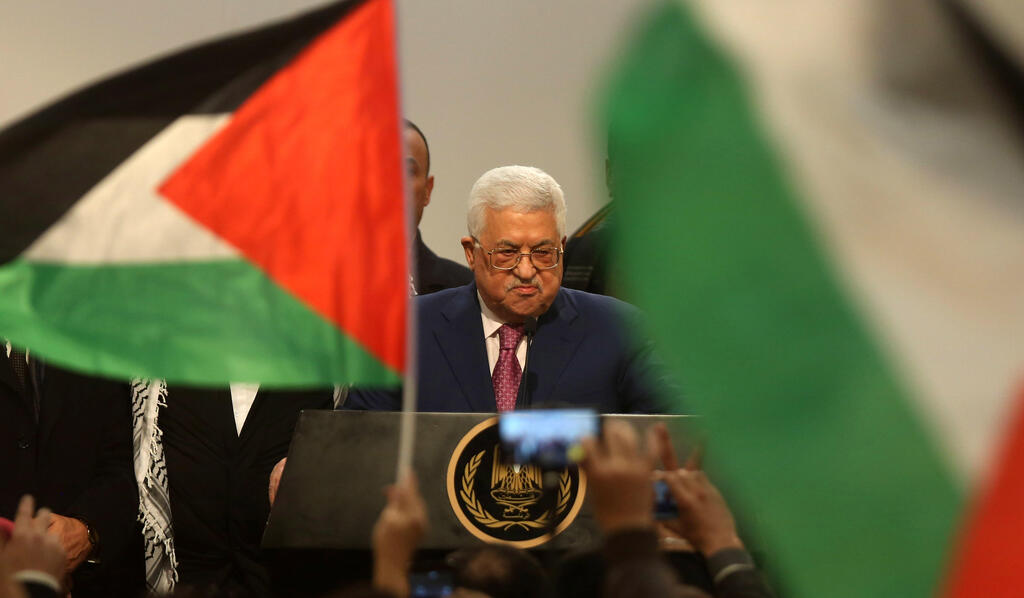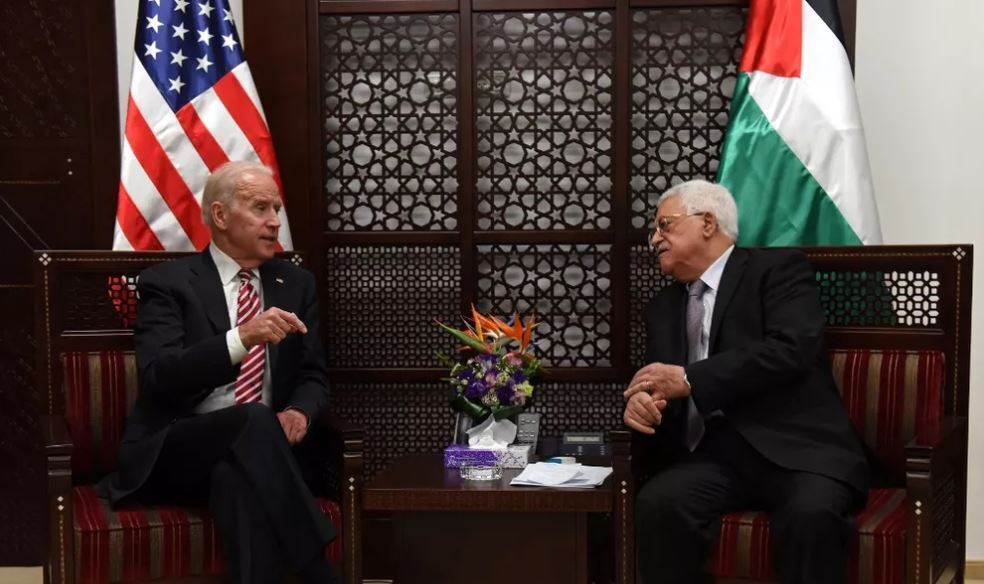The Palestinian Authority is experiencing the worst fiscal difficulties it has ever had since its establishment more than a quarter-century ago. Top officials say that the treasury is facing a severe cash crunch, and this could soon reflect on its ability to pay government salaries and conduct daily business.
An adviser to PA Prime Minister Mohammad Shtayyeh told a local radio station that the PA is experiencing its worst financial situation in years.
In an interview on Ajyal Radio this week, Stephen Salameh said that the cessation of European support comes on top of a massive reduction in financial aid from Arab countries and the United States. In the past, when faced with financial crises, the PA turned to wealthy Arab governments in the Gulf for assistance, but that support has declined.
Of the $100 million that the Arab League member countries had committed to the PA as part of a financial “security net,” less than $2 million has been forthcoming, according to a top official at the PA Ministry of Finance.
The donors’ share of the PA budget has dropped by a whopping 58% in the past few years, forcing the government to scramble for ways to make up the difference. This has left the PA with limited options; it raised taxes, implemented austerity measures, and looked to local banks for loans.
But with the emergence of the coronavirus and an economy on the ropes, citizens cannot afford to pay higher taxes and banks are increasingly wary of continuing to raise the PA’s borrowing limit. The government is now trying to resurrect old moves from its playbook.
President Mahmoud Abbas dispatched Shtayyeh to Brussels this week to persuade the Europeans to restore financial aid. The PA government has received no aid from the European Union this year.
An example of how serious the financial situation is: Gas stations in the West Bank city of Bethlehem have refused to service PA cars, including security vehicles because the government hasn’t paid its bills.
Nizar al-Jabari, a member of the Administrative Board of the Gas Station Owners Syndicate, said on Wednesday that the PA Ministry of Finance paid 3 million shekels, or $940,000, to the gas stations the previous day.
Jabari estimates the government debt to gas stations at “between 50 million and 60 million shekels,” or $16 million $19 million. The problems are serious enough that they threaten the authority’s very existence.
On the political front, Abbas is facing growing challenges within his own Fatah party and popular turmoil because of his crackdown on civil liberties and the cancellation of presidential and parliamentary elections that have been scheduled for the summer. And the lack of progress on the negotiations track with Israel has had a major impact on the PA’s standing locally, regionally, and internationally.
The Palestinian street is growing impatient with the PA government. “Prices are rising, incomes are either stagnant or there’s no work,” said Ameen Khairi, a shop owner in Nablus, in the northern West Bank. “They overburdened us with taxes that we can’t afford. The PA needs to live within its means.”
The economy in the Palestinian territories is teetering on the verge of collapse and the internal divide is growing ever deeper. “The Palestinian economy continues to suffer under the occupation. Now, couple that with the bad management of the coronavirus policy that added to the troubles,” says Jamal Nimer, chairman of the Board of Directors at the Carmel Hotel in Ramallah.
He said that the Palestinian economy is failing, especially the tourist sector, which has been hit hard because of the closures and restrictions as part of the government policy to contain the COVID-19 pandemic.
“Our economy is struggling, unemployment is soaring and poverty levels are skyrocketing. The outlook for the Palestinian economy is gloomy,” Nimer said. More than a quarter of Palestinians lived in poverty before the pandemic.
Dr. Nasr Abdel Karim, a professor of finance and economics in the College of Graduate Studies at the Arab American University in Ramallah, says there is no doubt that the PA is going through a “real and suffocating financial crisis. Its manifestations are evident. There is a budget deficit, an accumulation of debt, and delays in paying its obligations. It’s undeniable that there’s a clear decline in aid.”
Abdel Karim said, however, that this crisis is “not new and has been repeated for years.” But he argues that what makes the current financial hardship different is “essentially the position of the European Union. European aid, which was between $400 million and $500 million (annually), is not present now.”
Last week, one of the PA’s biggest European backers criticized the Palestinian government for widespread graft. A Swedish radio station quoted Foreign Minister Ann Linde as saying: “The corruption that pervades Palestine is an obstacle to providing economic support.”
Eighty-three percent of Palestinians believe there is corruption in PA institutions, according to a recent poll by the Ramallah-based Palestinian Center for Policy and Survey Research (PCPSR).
Abdel Karim adds that Palestinians had great expectations following the election of US President Joe Biden and the change in administration that the flow of American aid would soon resume after the Trump White House cut it off.
“This isn’t happening yet, leaving the PA disappointed with the U.S. administration,” he said. One of Abbas’ advisers confirmed to The Media Line that the president and his inner circle are “concerned” about the financial and political state of the PA.
”There is a feeling in the Mukataa that we have been abandoned by everyone,” he said, referring to the presidential compound in Ramallah, the seat of the PA government.
According to the London-based, pan-Arab Al-Araby Al-Jadeed newspaper, during a meeting with the Palestinian leadership in Ramallah last week, Abbas became furious at the Biden administration, describing U.S. officials as “liars for not keeping the promises they made to us.”
Those promises include reopening the Palestine Liberation Organization office in Washington, providing financial support to the PA, and reopening the U.S. consulate in East Jerusalem.
The Palestinians were counting on renewed U.S. support, politically and financially, that would encourage wealthy Arab states to restore their financial support. However, according to the same unnamed source, there is “a clear American truancy about directly returning financial support to the PA, especially as the United States accuses the PA of corruption.”
“This has affected the Gulf’s response to the requests from the PA,” the source said. Abdul Karim says the PA leadership is living in a “political and financial bubble,” and that this week’s visit of the head of the Palestinian General Intelligence Service, Majid Faraj, to Dubai, although it is under the cover of a visit to the Palestine pavilion at Expo 2020, “is an attempt to placate the United Arab Emirates and restore ties.”
Faraj, one of Abbas’ closest and most trusted confidants, met with the ruler of Dubai, Sheikh Mohammed bin Rashid Al Maktoum, amid intensive official Palestinian media coverage. It was the first time Mohammed bin Rashid met with a senior Palestinian official since relations between the PA and the UAE became strained.
“The Palestinian Authority is also concerned about the diplomatic crisis because if conditions improve diplomatically, it will have positive repercussions for financial aid,” Abdul Karim said.






